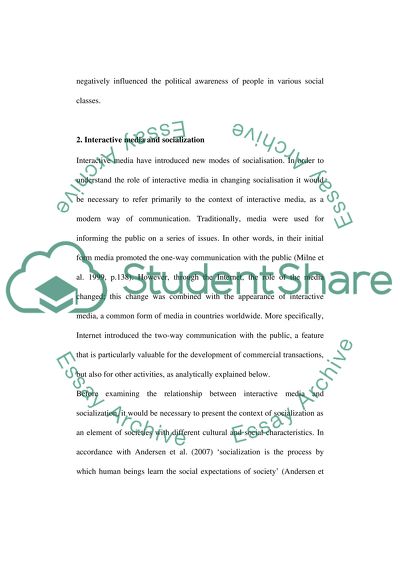Cite this document
(“Do interactive media change socialisation Essay”, n.d.)
Retrieved de https://studentshare.org/journalism-communication/1390162-do-interactive-media-change-socialisation
Retrieved de https://studentshare.org/journalism-communication/1390162-do-interactive-media-change-socialisation
(Do Interactive Media Change Socialisation Essay)
https://studentshare.org/journalism-communication/1390162-do-interactive-media-change-socialisation.
https://studentshare.org/journalism-communication/1390162-do-interactive-media-change-socialisation.
“Do Interactive Media Change Socialisation Essay”, n.d. https://studentshare.org/journalism-communication/1390162-do-interactive-media-change-socialisation.


